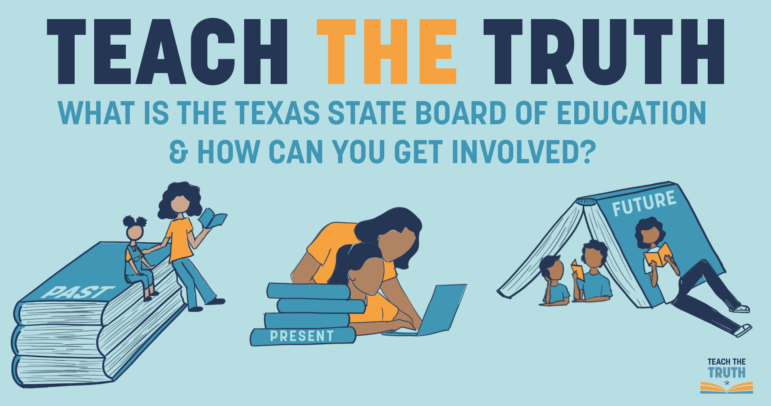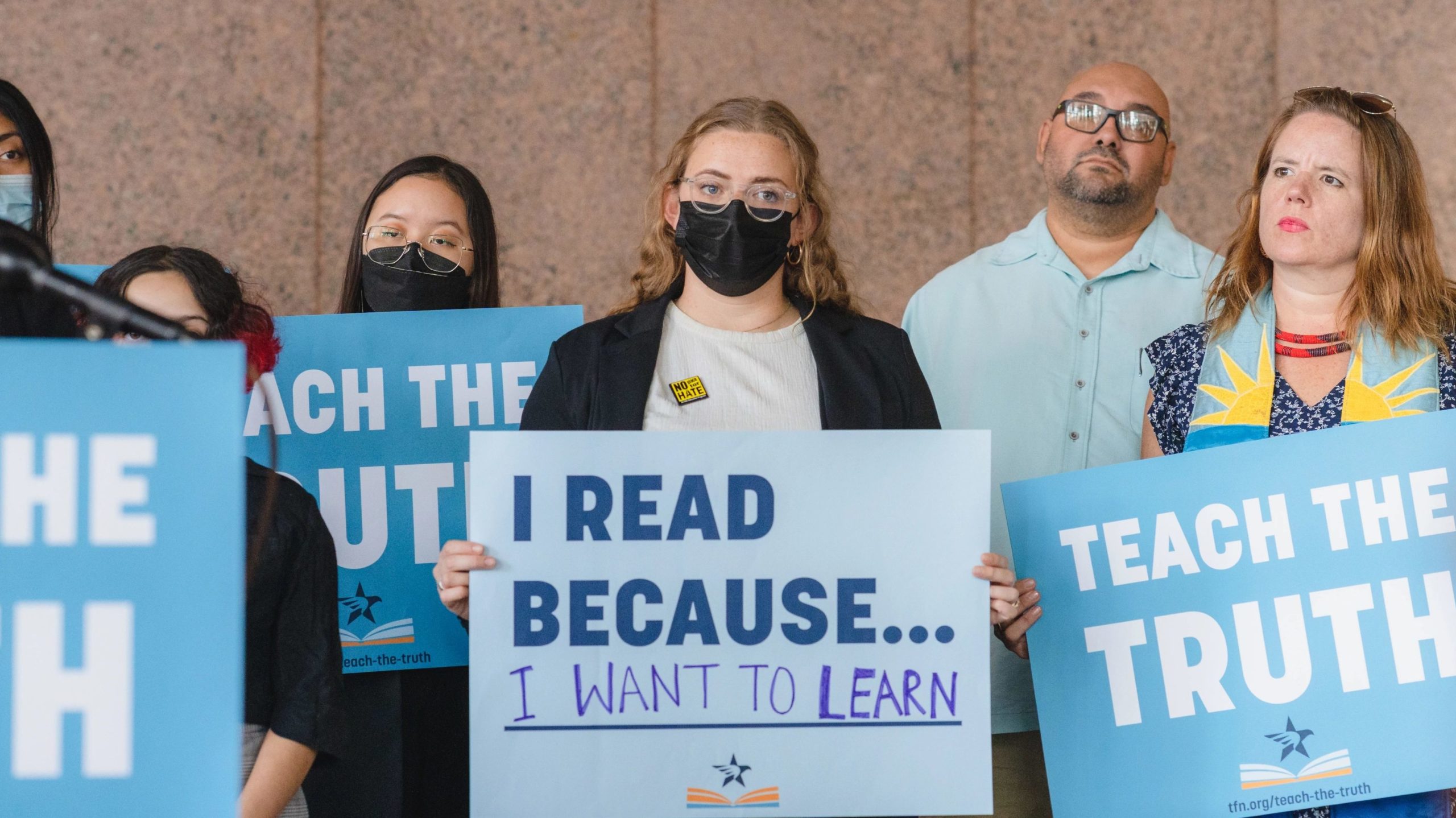The classroom is no place for political theatre — that’s why Cecile Richards founded TFN in 1995 after attending her first State Board of Education (SBOE) meeting and observing how the far-right’s political agenda was influencing the sex-ed standards in Texas public schools.
More than two decades later, we’re continuing to keep a close watch on SBOE meetings.
So — with an eye on the future of education in Texas and beyond — what exactly is the SBOE? Why does it matter so much? And how can you be part of our important work to #TeachTheTruth?
What is the Texas State Board of Education (SBOE)?
The Texas State Board of Education (SBOE) is a board made up of 15 members elected from districts across the state of Texas.
Together, the members have several responsibilities, like overseeing the Texas Permanent School Fund and approving charter schools. But the SBOE’s most high-profile responsibility by far is deciding what is — and isn’t — taught in our public schools. This process starts with the board adopting curriculum standards for a particular subject area. Those standards are what are referred to as Texas Essential Knowledge and Skills, or TEKS.
The Chair of the board is appointed by the governor. Board members’ terms are staggered, meaning about half of them are on the ballot every two years.
The SBOE is meant to create curricula that teach the truth and serve the needs of all Texas students — but instead, its conservative members tend to use their extreme influence to push a far-right political agenda.
A few examples:
- Historical whitewashing and politicization dominated the 2010 social studies standards revision — and during the next revision in 2022, far-right conspiracy theorist and election denier Stephen Balch was appointed in an advisory role.
- SBOE member Julie Pickren, who was present at the Jan. 6 Capitol attack, is pushing to bring conservative propaganda machine PragerU to schools.
- In November 2023, the SBOE voted to reject the majority of proposed science textbooks that teach the truth about climate change and evolution, while adopting textbooks that severely diminished their coverage on these subjects to satisfy right-wing board members’ political agenda. The members opposed to teaching the truth claimed some textbooks were biased against the fossil fuel industry and should offer “alternatives” to evolution.
New attacks on teachers, books, and accurate, honest education are mounting each day.
How is the Texas SBOE different from my local school board?
The State Board of Education differs from your local school board in that your local board focuses on a sole school district’s governance. Local school boards implement the standards and policies created by the SBOE, manage the appointment of superintendents, and control the district’s annual budget for education.
Citizens are welcome to attend all school board meetings (unless there are legally specified circumstances that state otherwise), and there’s generally time set aside for public comments at each meeting.
Running for your local school board is a great way to get more involved in shaping how your district educates students! While there are a few general requirements for running in your district, you don’t need to have a background in public education, government, or public policy to be a great addition to your local school board.
Why does the Texas SBOE and its decisions matter?
The Texas SBOE is one of the largest bodies of elected officials in the state. SBOE districts are enormous, and just one state board of education member has more constituents — about 1.6 million — than any other elected official in Texas.
They control everything that is learned by the 5.5 million-and-counting students in Texas public schools, on every subject. They review curriculum standards, and textbooks are published based on those standards.
The curriculum standards created by the SBOE have often been criticized, both in Texas and across the U.S. In 2020, for example, Texas students petitioned for revisions to a McGraw-Hill textbook based on the state’s standards that referred to enslaved people as “workers” and compared the Atlantic slave trade to other “patterns of immigration.” And there are notable differences between our textbooks and the other largest market, California — differences that have drawn national attention, even from the conservative Fordham Institute, which called Texas’ 2010 standards “a politicized distortion of history.”
What happens in Texas doesn’t just stay in Texas!
We’re one of the largest markets for textbooks. Major national publishers will create textbooks based on our standards and revisions. Other states will then purchase those textbooks, which means students across the country will receive an education that was not decided by their own state or school district, but by the far-right Texas SBOE.
How can Texans make sure our schools teach the truth?
As our president and executive director Val Benavidez stated during our Teach the Truth campaign launch, “Texas students do not need book bans and censorship. What they need is an education that allows them to see themselves represented and to learn from our past in order to build a better future for themselves and our country.”
You have the power as a member of the community to fight censorship and book banning.
Enact change by proactively organizing on your local school board, attending regular meetings, testifying at the SBOE, and letting your state representatives know that you will not tolerate the creation of standards that distort our nation’s history, erase the stories of Black and Brown communities, and devalue the experiences of LGBTQIA+ people. By taking action, we can ensure community voices drive education policy — not politicians with a personal agenda.
Join our #TeachTheTruth campaign to receive updates on SBOE meetings and standard revisions and to learn more about getting involved with our movement to fight educational censorship.



